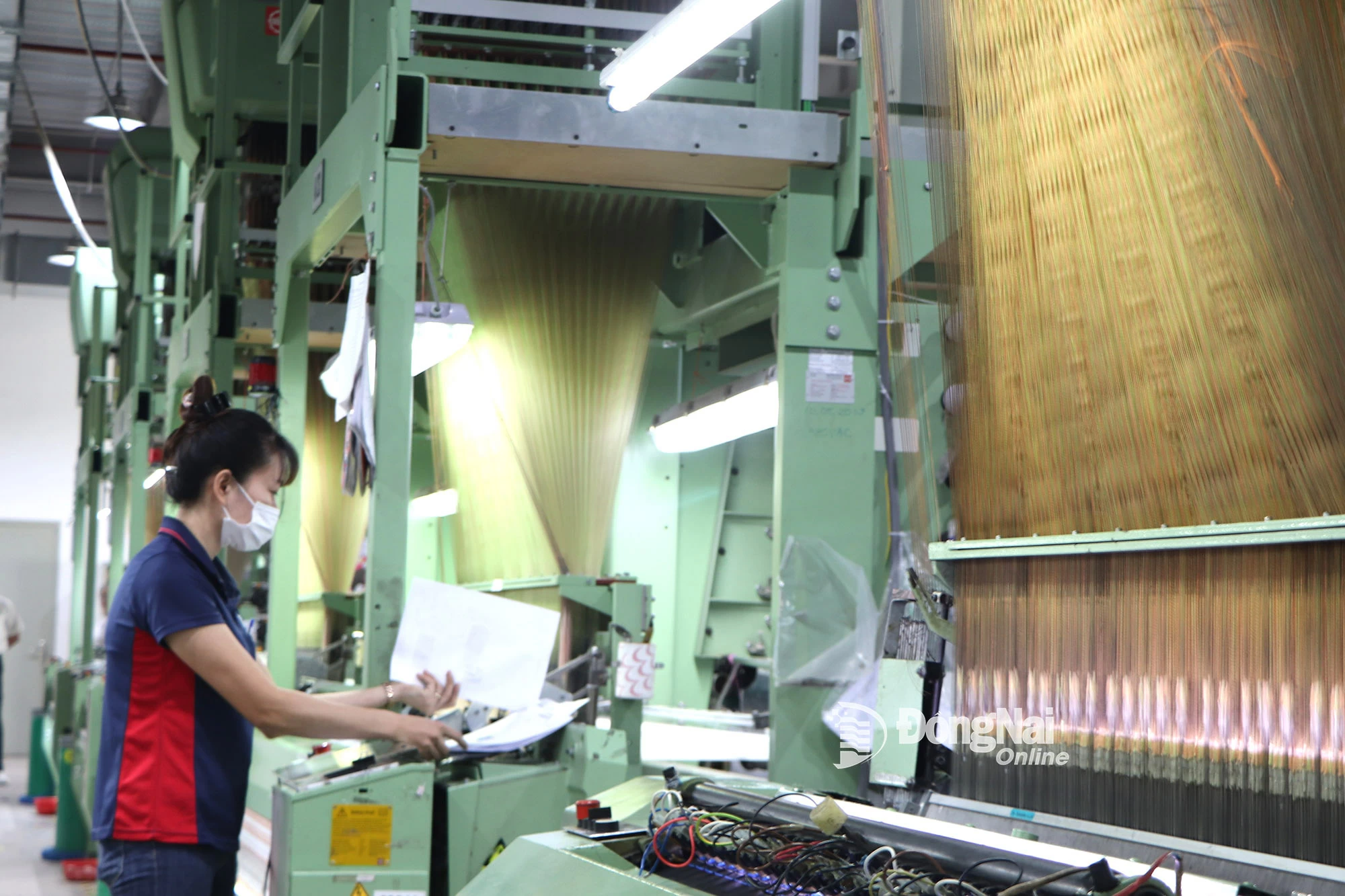 |
| Label production at Junmay Vietnam Label Textile Company Limited (Ho Nai 3 Industrial Park), one of the stages supplying the export footwear manufacturing industry. |
In Dong Nai , provincial leaders, departments, branches, and import-export enterprises, especially those with export markets to the United States, have proactively developed plans to respond to the United States' trade policies.
Be proactive and know the situation from the beginning
According to the list of 69 countries and territories that the US announced the tax rate on August 1, the applied DTUC rate ranges from 10-41%. In particular, in the ASEAN region (Southeast Asian countries), Myanmar and Laos are the two countries subject to the highest DTUC rate of 40%; Brunei 25%; Vietnam 20%; Indonesia, Thailand, Malaysia, Philippines and Cambodia are subject to a tax of 19%. Singapore is the only country in ASEAN subject to a DTUC rate of 10%. This result shows that, except for Laos and Myanmar, which will lose many advantages in competition and investment attraction, the remaining countries are not under great pressure in terms of export market competition or investment attraction.
Notably, Vietnam is the case that has received the deepest reduction in TPP compared to the initial announcement by President Donald Trump (from 46% to 20%). This is the result of high-level negotiations between leaders of the Party, State, ministries and central branches over the past 4 months. During the negotiation process, Vietnam and the United States focused on discussing and achieved much progress in issues such as: tariffs, rules of origin, customs, agriculture , non-tariff measures, digital trade, services and investment, intellectual property, sustainable development, supply chains, trade cooperation, etc.
In Dong Nai, right from the first days when President Donald Trump announced that he would apply a 46% import duty, provincial leaders, departments, and branches quickly conducted surveys to grasp the impact of the import duty policy on businesses operating in the province. Among them, many businesses in the textile, footwear, wood, and electronics industries, which depend heavily on the US market, were strongly affected.
In terms of investment attraction, if the US increases the TĐƯ, some investors may consider shifting to other countries with more advantages. Production projects oriented towards the export market to the US may be postponed or redirected to countries that have not yet imposed high tariffs. This reduces the investment attraction in industrial zones, which are heavily dependent on foreign direct investment (FDI).
In the first 6 months of 2025, Dong Nai's exports to the US market are estimated at 4.6 billion USD. Some of the main export items to the US market include: footwear of all kinds; textiles; computers, electronic products and components; machinery, equipment, tools and spare parts...
Accompanying businesses in responding to tax policies
During the past 4 months, the Party and Government have focused on national-level negotiations to reach the most beneficial agreement for both Vietnam and the United States. In Dong Nai, in addition to directing specialized departments to learn, listen and grasp the difficulties of businesses, provincial leaders have also strengthened direction on improving the investment environment, increasing land funds, and establishing many new industrial parks to welcome investors.
Many businesses operating in the province are also "holding their breath" waiting for the results of the negotiations with the hope of applying the most reasonable and regulated TĐƯ rate.
Ms. Nguyen Thi Ngoc Thuy, Executive Director of FFG Company Limited (Long Binh Industrial Park, Long Binh Ward), said: Vietnamese goods are officially subject to a 20% tariff. Compared to the time when the United States announced the imposition of a 46% tariff, the 20% rate has decreased significantly. This result reflects the impressive results achieved in strengthening the economic relationship between Vietnam and the United States, and the emergence of a new tariff framework. According to Ms. Thuy, tariff regulations are one of the steps showing that the United States has begun to tighten compliance with procedures in tracing the origin of goods entering the US market. Therefore, businesses have proactively developed plans to respond and gradually adapt to the changes. In particular, focusing on solutions to convert to modern technology, while seeking new potential markets.
Responding to the impacts of the pandemic, the Department of Industry and Trade has recently advised provincial leaders to proactively develop response plans such as: supporting businesses to maintain and renegotiate unfinished orders; encouraging businesses to promote exploitation of alternative markets, especially markets that have signed trade agreements with Vietnam (FTA) such as: EU (European Union), Korea, Japan... This will be a solution to help businesses reduce their dependence on the US market.
In meetings, exchanges and dialogues with enterprises operating in the province, Deputy Secretary of the Provincial Party Committee, Chairman of the Provincial People's Committee Vo Tan Duc always emphasized: Provincial leaders uphold the motto "Government accompanies enterprises". Therefore, Dong Nai province always welcomes and creates the most favorable conditions for international investors. The Chairman of the Provincial People's Committee expects: Through the meetings, Dong Nai province is ready to coordinate, share information on cooperation and investment opportunities and hopes to receive support and connections from enterprises, embassies, consulates as well as Vietnamese representative agencies abroad... to build an effective and sustainable friendly and cooperative relationship between Dong Nai province and its partners.
Ngoc Lien
Source: https://baodongnai.com.vn/kinh-te/202508/doanh-nghiep-ung-pho-voi-muc-thue-doi-ung20-tu-hoa-ky-7ee0d6d/



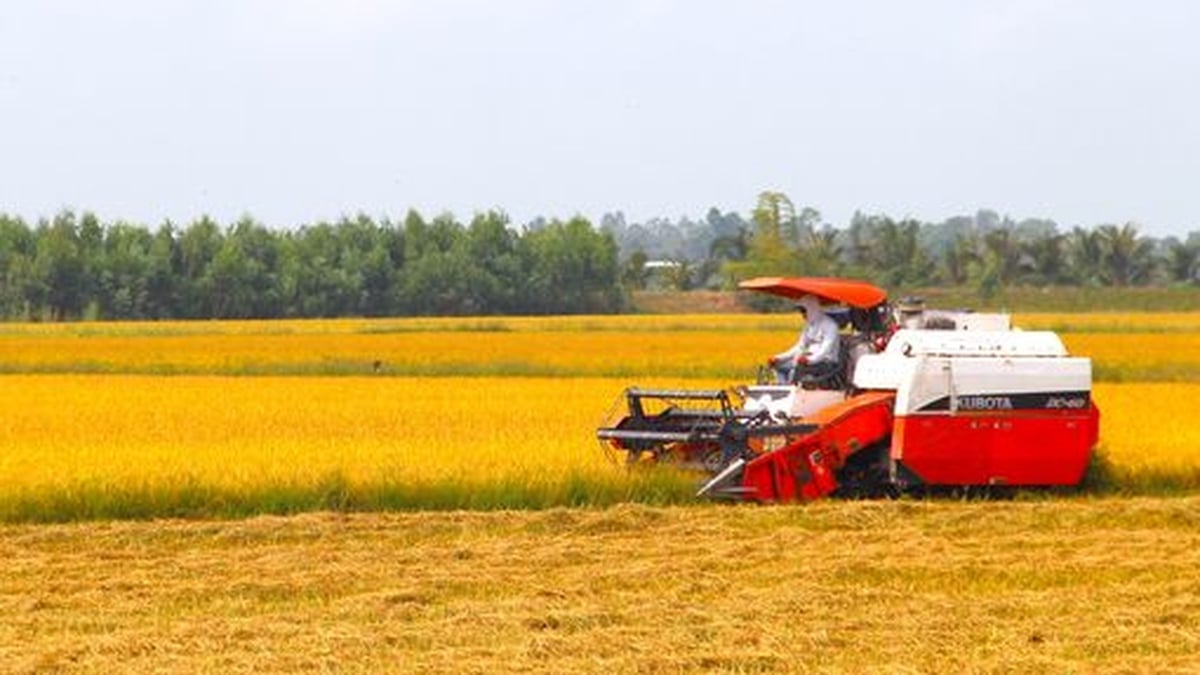


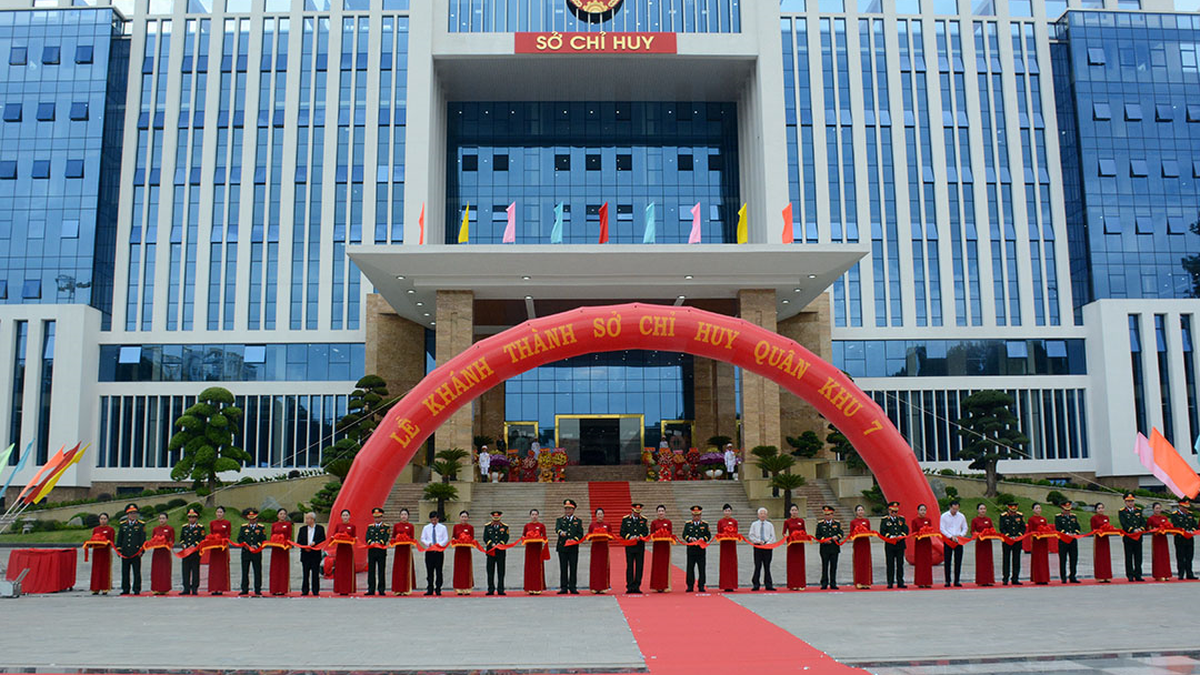
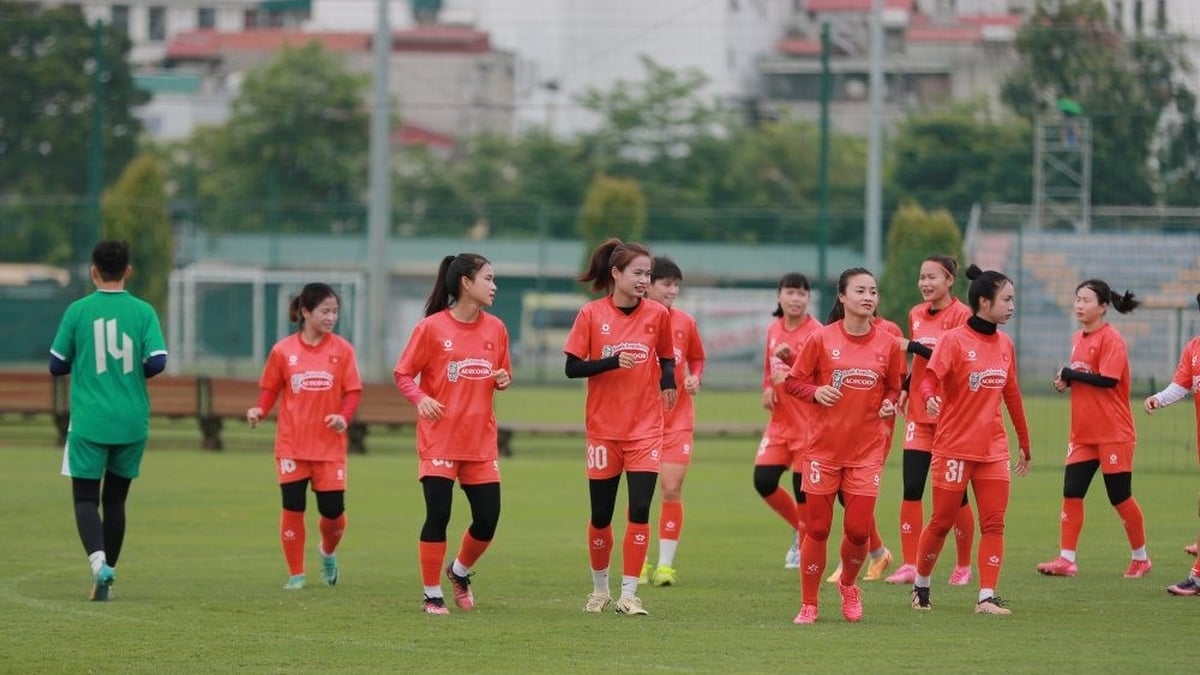





















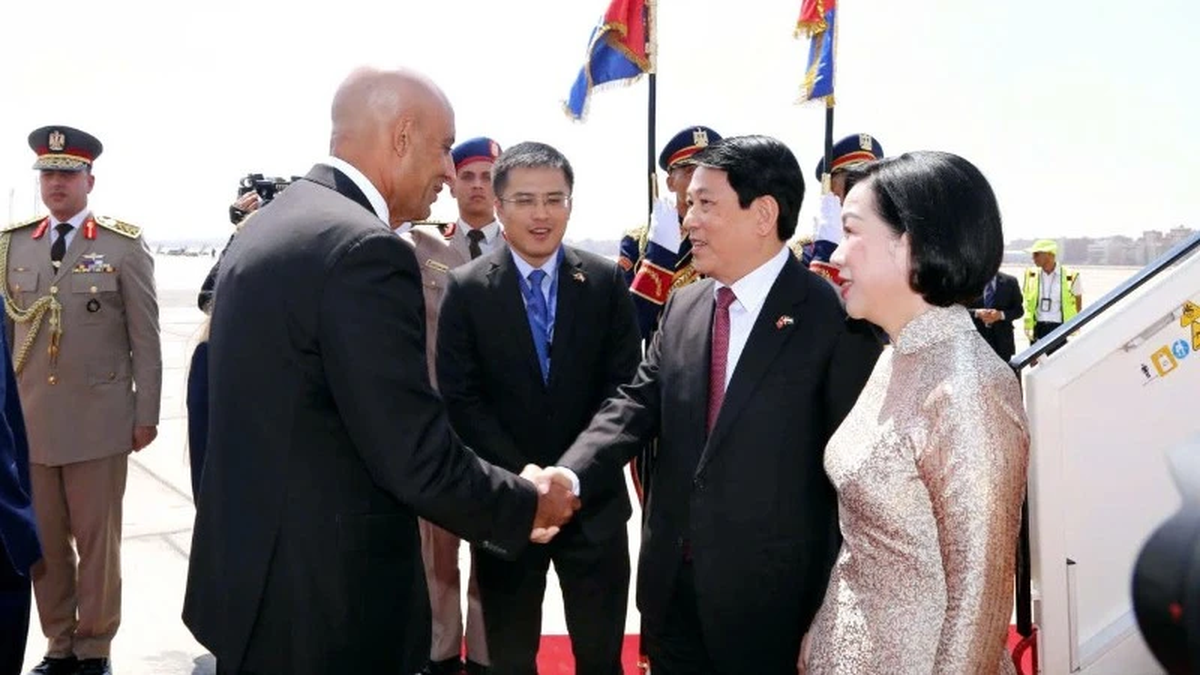





























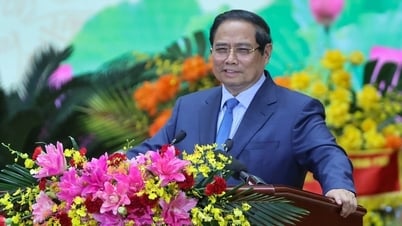
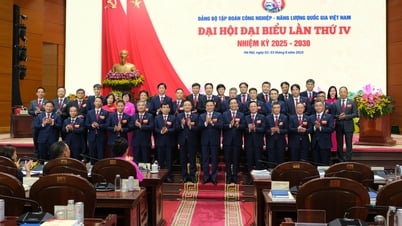

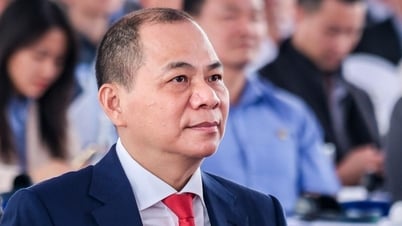




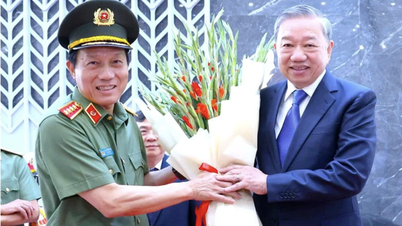
![[Infographic] Traditional friendship and good cooperation between Vietnam and Egypt](https://vphoto.vietnam.vn/thumb/402x226/vietnam/resource/IMAGE/2025/8/4/9a2112b4046e4c128fdcb5403489866a)


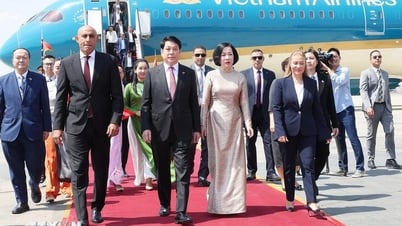

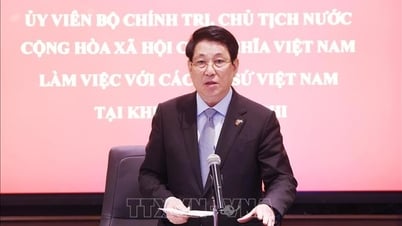

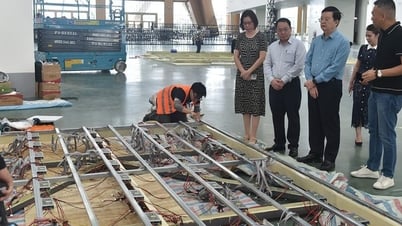

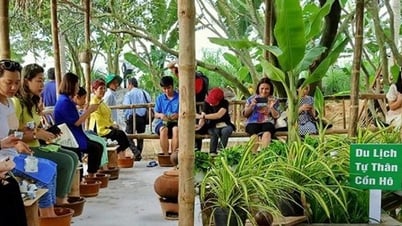
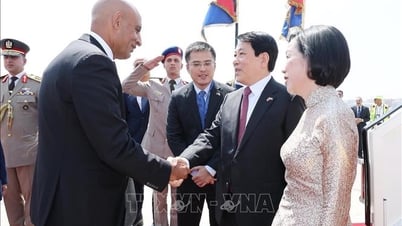


















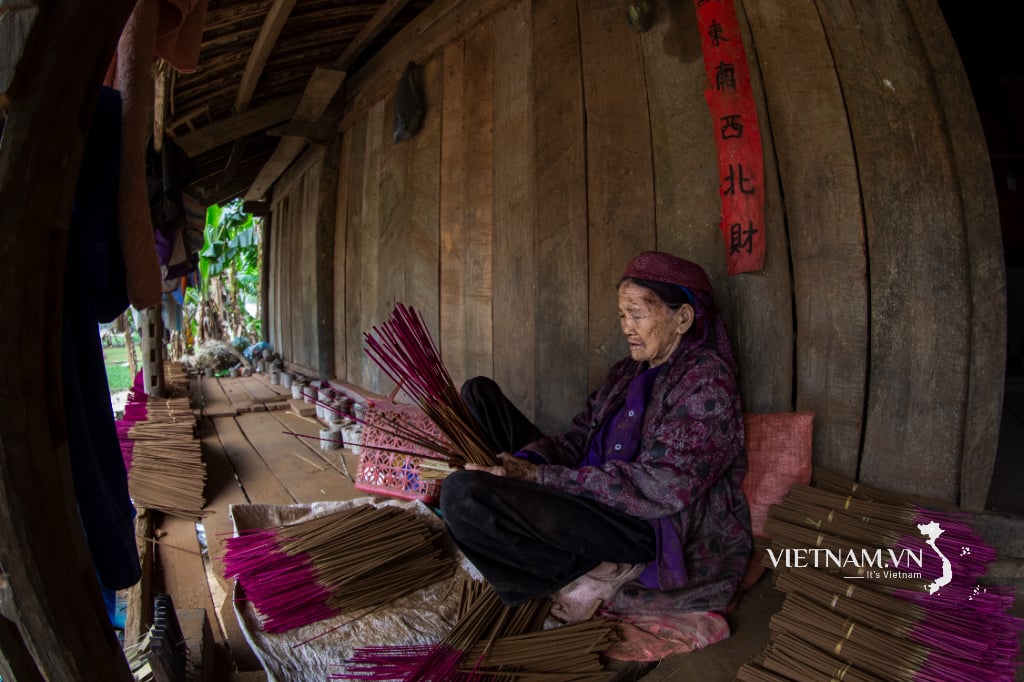
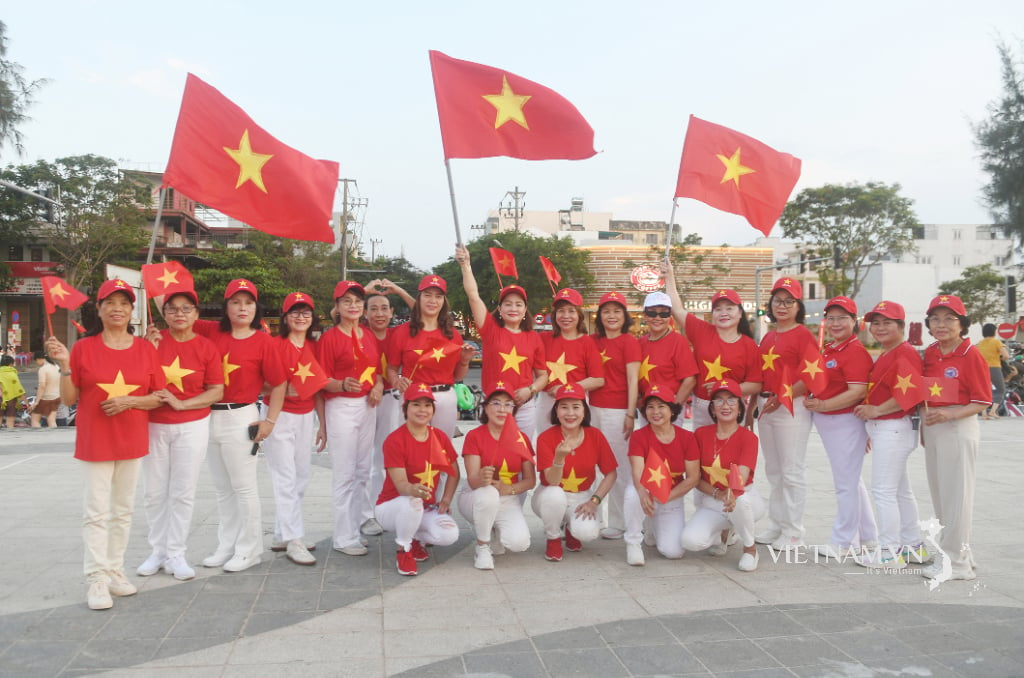


Comment (0)